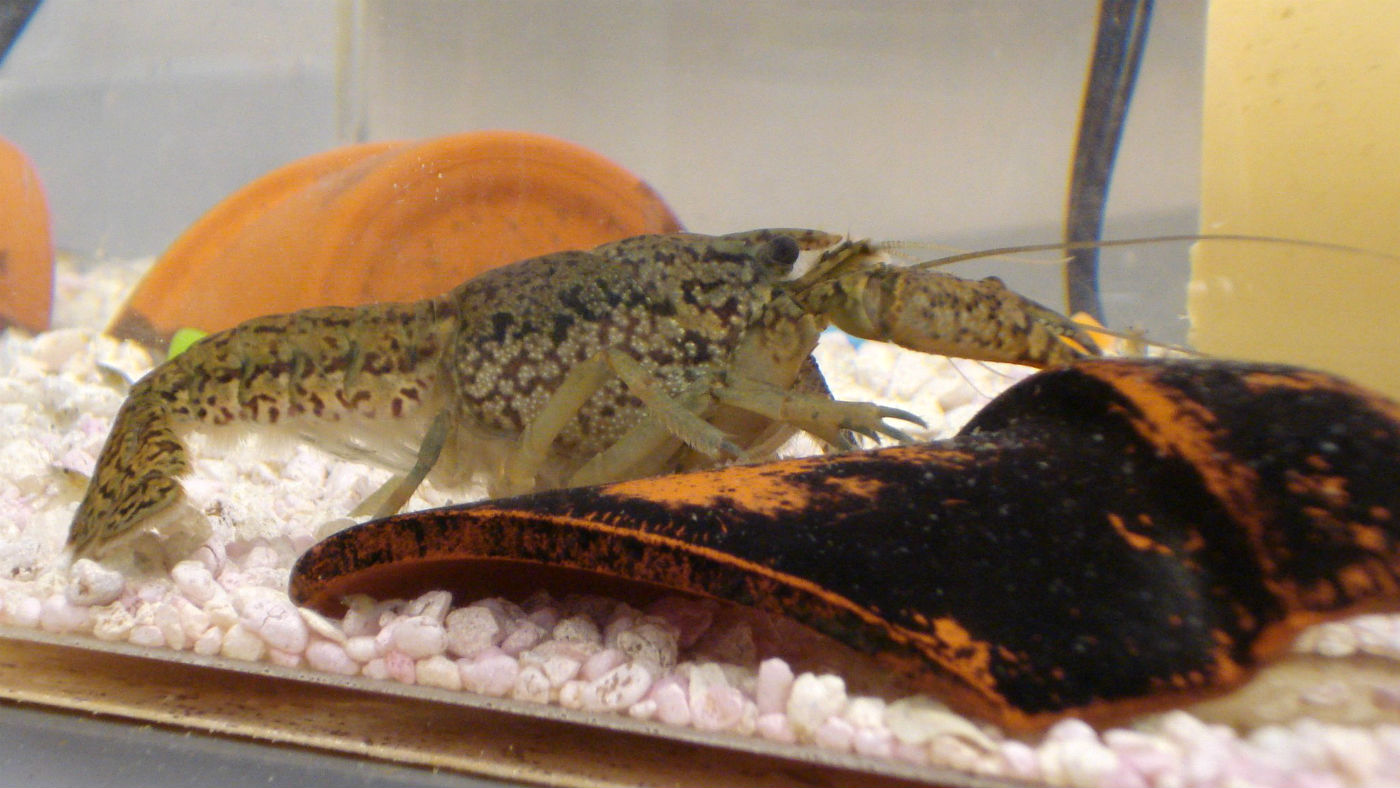Self-cloning marbled crayfish spreading across the world
All-female invasive species can reproduce without a partner

A free daily email with the biggest news stories of the day – and the best features from TheWeek.com
You are now subscribed
Your newsletter sign-up was successful
A new species of crayfish that can reproduce without the involvement of a male is spreading rapidly through oceans across the globe.
The first marbled crayfish appeared less than 25 years ago, but the self-cloning species now considered a threat to native crayfish populations in several ecosystems, according to a new study published in the journal Nature, Ecology and Evolution.
A previous study called the breed “potentially the most dangerous non-indigenous crayfish species spreading in European countries and elsewhere”, says The Independent. Invasive species can disrupt native populations by consuming their food resources or introducing diseases.
The Week
Escape your echo chamber. Get the facts behind the news, plus analysis from multiple perspectives.

Sign up for The Week's Free Newsletters
From our morning news briefing to a weekly Good News Newsletter, get the best of The Week delivered directly to your inbox.
From our morning news briefing to a weekly Good News Newsletter, get the best of The Week delivered directly to your inbox.
Marine scientists say the species originated from a single female with a genetic mutation enabling it to reproduce alone.
“Every marbled crayfish is female, and every egg laid is an exact clone of its mother,” the Independent reports.
The original mutant female was born to two American slough crayfish in a German pet shop in the 1990s and her descendants quickly became a must-have for aquarium hobbyists, says the BBC. However, as their tanks filled up with clones, “people began releasing unwanted crayfish - also known as marmorkrebs - into ponds and lakes across Europe”.
“From that one animal, the whole population now that we can find worldwide - in Japan, in Madagascar, in Europe, and also in the US - that's where all of these animals stem from,” neurophysiologist Dr Wolfgang Stein told Canadian broadcaster CBC.
A free daily email with the biggest news stories of the day – and the best features from TheWeek.com
Stein said that the international pet trade is responsible for the invasive species spread around the world.
Marbled crayfish are now banned from sale in the European Union, but continue to be sold in some Canadian pet shops. However, a spokeswoman for Canada’s fisheries and oceans department discouraged people from buying them and noted that releasing them into the wild is illegal.
“Based on what is known about the reproductive behaviour of the marbled crayfish, we do not recommend Canadians keep these animals as pets," she said.
-
 Political cartoons for February 15
Political cartoons for February 15Cartoons Sunday's political cartoons include political ventriloquism, Europe in the middle, and more
-
 The broken water companies failing England and Wales
The broken water companies failing England and WalesExplainer With rising bills, deteriorating river health and a lack of investment, regulators face an uphill battle to stabilise the industry
-
 A thrilling foodie city in northern Japan
A thrilling foodie city in northern JapanThe Week Recommends The food scene here is ‘unspoilt’ and ‘fun’